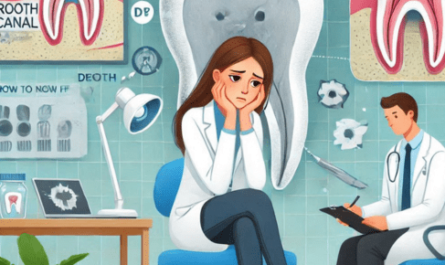
Mental exhaustion is a common yet often overlooked condition that can significantly impact your overall well-being. It manifests as a feeling of fatigue that affects your cognitive functions, making it difficult to focus, make decisions, or engage in everyday activities. This article will explore effective strategies to combat mental exhaustion and restore your mental vitality.
Understanding Mental Exhaustion
What Causes Mental Exhaustion?
Mental exhaustion can arise from various sources, including:
- Chronic Stress: Prolonged exposure to stress, whether from work, relationships, or personal issues, can deplete your mental resources.
- Overworking: Working long hours without adequate breaks can lead to burnout.
- Emotional Strain: Dealing with challenging emotions or traumatic events can sap your mental energy.
- Poor Sleep: Lack of quality sleep can exacerbate feelings of fatigue and decrease cognitive performance.
Symptoms of Mental Exhaustion
Recognizing the signs of mental exhaustion is the first step toward recovery. Common symptoms include:
- Fatigue: Persistent tiredness that doesn’t improve with rest.
- Cognitive Decline: Difficulty concentrating, making decisions, or remembering information.
- Irritability: Increased frustration and mood swings.
- Physical Symptoms: Headaches, stomach issues, or a general feeling of malaise.
Strategies for Overcoming Mental Exhaustion
1. Prioritize Rest and Sleep
Importance of Quality Sleep
One of the most effective ways to combat mental exhaustion is to ensure you are getting adequate rest. Quality sleep is essential for cognitive functions and emotional regulation.
- Establish a Sleep Routine: Aim for 7-9 hours of sleep each night. Go to bed and wake up at the same time daily to regulate your body clock.
- Create a Relaxing Environment: Make your bedroom conducive to sleep by minimizing noise, using blackout curtains, and keeping the room cool.
2. Practice Mindfulness and Meditation
Benefits of Mindfulness
Mindfulness techniques, such as meditation and deep breathing exercises, can help alleviate mental exhaustion by promoting relaxation and enhancing focus.
- Meditation: Spend 5-10 minutes daily practicing mindfulness meditation. Focus on your breath and let go of racing thoughts.
- Deep Breathing: Try deep breathing exercises to reduce stress and anxiety. Inhale deeply through your nose, hold for a few seconds, and exhale slowly through your mouth.
3. Engage in Physical Activity
Exercise as a Stress Reliever
Physical activity is a natural remedy for mental exhaustion. Regular exercise releases endorphins, which can boost your mood and energy levels.
- Find an Activity You Enjoy: Whether it’s walking, yoga, dancing, or cycling, choose an exercise that you find enjoyable to make it a regular part of your routine.
- Short Bursts of Activity: Even short, 10-15 minute sessions of physical activity throughout the day can help elevate your mood and reduce fatigue.
4. Limit Screen Time
Digital Detox
Excessive screen time, especially before bed, can contribute to mental fatigue. Reducing your exposure to screens can help improve your mental state.
- Set Boundaries: Limit social media use and screen time, particularly in the evenings.
- Engage in Offline Activities: Consider reading, journaling, or pursuing hobbies that don’t involve screens.
5. Nourish Your Body
The Role of Nutrition
What you eat can significantly affect your mental energy levels. A balanced diet rich in nutrients can enhance cognitive functions and mood.
- Stay Hydrated: Dehydration can lead to fatigue. Aim to drink enough water throughout the day.
- Balanced Diet: Incorporate fruits, vegetables, whole grains, lean proteins, and healthy fats into your diet. Foods rich in omega-3 fatty acids, such as fish, can also boost brain health.
6. Connect with Others
The Power of Social Support
Isolation can exacerbate feelings of mental exhaustion. Connecting with friends, family, or support groups can help alleviate feelings of loneliness and provide emotional support.
- Talk It Out: Sharing your feelings with someone you trust can provide relief and perspective.
- Engage in Group Activities: Join clubs, classes, or community events to foster connections and support.
7. Set Boundaries
Learn to Say No
Overcommitting can lead to mental exhaustion. It’s essential to set boundaries to protect your mental health.
- Assess Your Commitments: Take a look at your current obligations and evaluate what can be reduced or eliminated.
- Communicate Your Limits: Don’t hesitate to say no to additional responsibilities that may overwhelm you.
8. Seek Professional Help
When to Consider Therapy
If mental exhaustion persists despite your efforts to manage it, consider seeking professional help. Therapists and counselors can provide valuable tools and strategies to address underlying issues.
- Cognitive Behavioral Therapy (CBT): This form of therapy can help change negative thought patterns and improve coping strategies.
- Support Groups: Engaging in group therapy can provide a sense of community and shared experiences.
The Role of Medication
In some cases, medications may be prescribed to manage symptoms associated with mental exhaustion, particularly if it is linked to anxiety or depression. For example, Cenforce 120mg or Cenforce 150 Review may be discussed as part of a broader treatment plan for individuals dealing with the psychological impacts of erectile dysfunction, which can often be exacerbated by stress and mental fatigue. Always consult with a healthcare professional before starting any medication.
All methods that we shared with you can help you are not. This will improve your mental health and balance out issues like stress and anxiety. If none of these works, you can always check out GO ED Medicine for the best medicines.
Conclusion
Mental exhaustion is a significant challenge that can affect every aspect of your life. By implementing the strategies outlined above, you can work towards regaining your mental vitality and well-being. Prioritize rest, practice mindfulness, engage in physical activity, and seek social support to combat mental exhaustion effectively. If symptoms persist, do not hesitate to consult a healthcare professional for guidance and support. Taking proactive steps today can lead to a healthier, more fulfilling life tomorrow.



